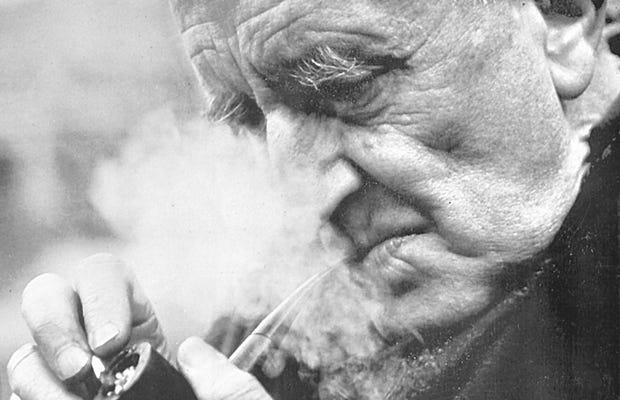In his introduction to St. Vladimir’s Seminary Press edition of On the Incarnation, C.S. Lewis goes on somewhat of a tirade about the favor of modern writers over classical authors.1 More often than not, he states, a small group of Christians will be seen gathered around a modern commentary on theology or the scriptures as opposed to a writer from classical antiquity (in this case, St. Athanasius). In a less “Christian” example, he points to the fact that many university students would sooner pick up a modern scholar’s book on the intricacies of Platonic thought, put it down in hopeless confusion, yet never think to take up Plato’s own work so that he may explain himself. It is here that Lewis offers a solution to the problem of our proclivity to our contemporaries. Quite simply: read what the great man has to say. “The great man, just because of his greatness, is much more intelligible than his modern commentator.”2 The practical advice he offers is even simpler than this, “It is a good rule, after reading a new book, never to allow yourself another new one till you have read an old one in between… The only palliative [to our own contemporary errors] is to keep the clean sea breeze of the centuries blowing through our minds, and this can be done only by reading old books.”3
The reason Lewis makes such a suggestion comes from an issue that is only exacerbated by our post-modern situation of “content creation” and the nearly constant influx of new trends and even newer commentary on these trends. What we have seemed to lose touch with in the pace of endless news updates is the value of speaking truth to our time, not with our own opinions, but by fluently expressing the commentary of those who have come before us. Lewis describes the benefit of speaking this way, as always, quite eloquently, “Every age has its own outlook. It is specially good at seeing certain truths and specially liable to make certain mistakes. We all, therefore, need the books that will correct the characteristic mistakes of our own period. And that means the old books.”4 To increase in wisdom we must interact and present great thinkers and writers of old, who in their own time were not stricken with the same blindness as we may be today. A truly wise person is not necessarily someone who can come up with something breathtakingly original, but one who is content to let others speak on their behalf.
“The great man, just because of his greatness, is much more intelligible than his modern commentator.” -C.S. Lewis
This is truly an ascetic practice in our postmodern era. Our society at large has placed such a value on authenticity, uncommonness, and originality that we have forgotten the value of that which is quite mundane and typically shy away from anything that may pin us as not thinking for ourselves. We must, as Christian people, learn to deny the cultural urge to be original and outspoken. Not thinking for ourselves is precisely the virtue that we must strive for. I do not mean to say that we should not think, but that we should think alongside others in order to avail ourselves of the wisdom that we could not have noticed otherwise. I might define it as “speaking ubiquitously.” Ubiquity is, of course, the principle of existing everywhere. To speak with ubiquity is to quote often, reference frequently, and commonly borrow ideas that are not our own. It is a silly notion to think that we may be able to say something better than anything that has been said before, though that is not to say that we should not say anything at all—I am writing on a personal platform, after all. Rather, instead of insisting that we must be intentionally innovative or progressive in our thought, we should strive to constantly refer to ages past, to speak in a fashion of sounding out the same voice of former times as we write, converse, and pontificate. If along the way we happen to say something entirely original, we should glory in the grace of God which enlightens our minds and the minds of his saints.
I will close this brief reflection with one final suggestion. The thinking of our own that must be done is not the innovations we make to classic definitions or ideas, but in discerning with whose voice we should speak. The world is full of an absurd amount of literature and an even more absurd number of thinkers and writers. It should not surprise us, then, that most of the thinking we must do must be exceedingly critical—not unwilling to encounter ideas that we may find disagreeable but always weighing them according to Truth. To become “the great man” ourselves we must learn to apply the Truth (which is our transcendent source of truth outside of all time, meaning it is true for all times) for the edification of the present, to speak with the timeless voice of the wisdom of the ages to prepare the world for the age to come.
Reading:
The Experience of God, David Bentley Hart (New Haven, CT: Yale University Press 2013)
“Everything That Rises Must Converge” by Flannery O’Connor (see below for podcast companion)
Hamlet
“The Smith of Wooton Major” by J.R.R. Tolkien
Watching:
The Pale Blue Eye (Netflix)
Madoff: The Monster of Wall Street (Netflix)
“The Icons of Saint Michael” directed by Austin Bland (orthodoxwest.com)
Listening:
“Flannery O’Connor’s ‘Everything That Rises Must Converge’” from The Particular Good
“#51 The Elliotts” from Heavyweight
“We are the Music Makers!” a compilation of American Folk music
St. Athanasius of Alexandria, On the Incarnation (Yonkers, NY: St. Vladimir’s Seminary Press 2011)
Ibid., 9.
Ibid., 10-11.
Ibid., 10.





really enjoyed this piece. nice work, PJ!